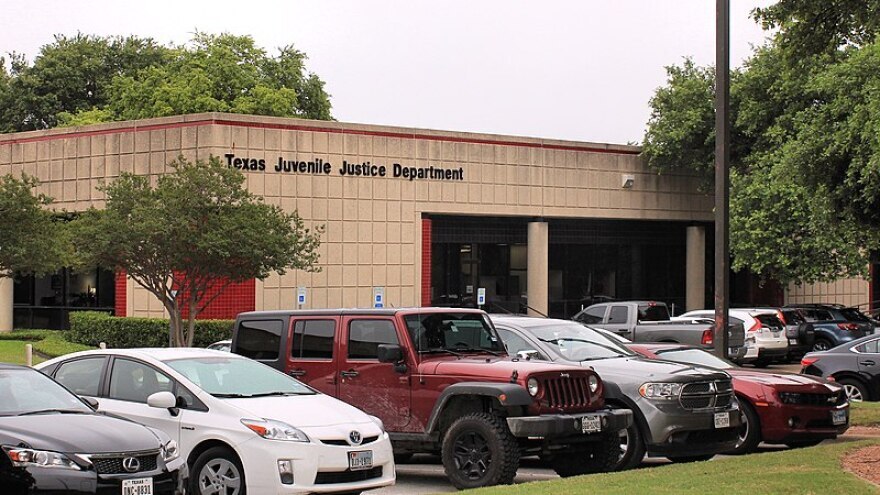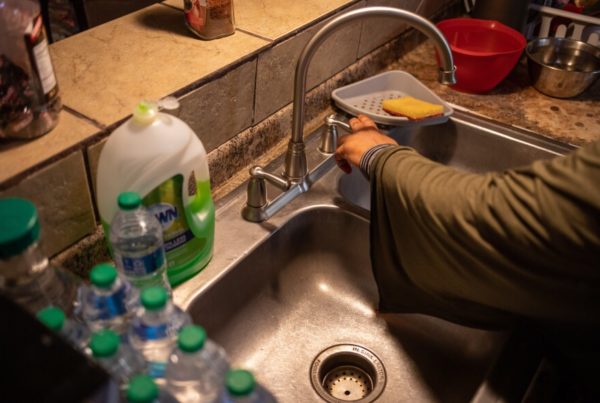From Texas Public Radio:
The unexpected resignation last week of the leader of Texas’ Juvenile Justice Department has reform advocates reeling.
After four years at the helm of the beleaguered state agency, executive director Camille Cain’s departure comes at a pivotal time.
Cain leaves TJJD while it faces critically low staffing levels and is being audited by the state’s Sunset Advisory Commission. The department faces even greater scrutiny from the Justice Department, which launched an infrequent federal investigation of the state’s secure detention facilities for allegations of physical and sexual abuse.
Cain was appointed in 2018 by Gov. Greg Abbott and was tasked with resolving staffing and violence issues that have plagued the org for more than a decade. But like her predecessors she saw mixed results.
“Camille Cain was deeply invested in trying to reform the agency and turn it into a trauma-informed environment for youth in a way that met their needs,” said Michele Deitch, director of the Jail and Prison Innovation Lab at UT-Austin’s LBJ School of Public Affairs.
Advocates saw Cain’s work dovetailing with their own — trying to reduce the numbers in secure facilities and advocating for smaller treatment hubs nearer to children’s homes.
Many have expressed concern about the state’s five overly large secure facilities that are in out of the way, rural settings.
“I think there were limitations on what she could accomplish given the inherent problems with large congregate facilities in the middle of nowhere,” said Deitch.
In recent years Cain pushed to change the whole system which she described as falling behind national trends — detaining more youth, more aggressively, and for longer.
“We have to start thinking differently about our juvenile justice system. The only thing that’s going to make Texas World Class is to catch up,” said Cain at a Feb 2022 TJJD Board Meeting.
“And to change our system fundamentally in a way that makes sense both for Texas and for kids…”
Many supporters saw her fighting a system unwilling to change.
Understaffing has been a persistent problem throughout TJJD and especially at its secure facilities. One official described the turnover rate as north of 70% for direct care staff in a recent TJJD board hearing.
It reached a low-water mark during the pandemic when — at one point — the Texas National Guard was brought in to assist. Guards members were replacing workers who had left or were out sick.
According to an agency self-review last fall, TJJD needs more money to raise wages to attract and retain people.
The agency did raise pay 15% for direct-care staff and mental health jobs since the report.
But last week an excess of $30 million was removed from TJJD and directed to border security rather.
The money was extra, said Gov. Abbott’s office. Texas funneled COVID relief funds — money meant to help states recover from lean tax years of the pandemic — to meet its bare minimum commitment to TJJD. Then instead of using the $24 million this year and $6 million next to shore up staffing levels or to build regional treatment centers — it went to the governor’s pet project Operation Lone star.
Cain resigned the same day.
A spokesman for TJJD said the agency used the funding as it was instructed and that just because the money was there didn’t mean it was theirs to use for raises.
For many reform advocates like Texas Appleseed’s Brett Merfish — the answer to many of TJJD’s problems is clear — shut down those rural, hard-to-manage, secure facilities.
“Yeah, close down those five state secure facilities, probably the halfway houses that go with him, and, you know, look to what we know works, which is smaller facilities, closer to home communities,” said Merfish.
These secure facilities are antiquated, agreed Democratic State Sen. John Whitmire.
“They can’t hire the professionals that they need to treat the students. And when you are in a rural area with multiple buildings, and they lose control of the youth,” he said.
Whitmire helped close many of the detention centers when the state reformed its juvenile system in 2007.
He commended Cain on doing the best she could under the trying circumstances. He expressed greater concern about persistent violence at state facilities. Assaults on guards and on other youth are a well documented part of life at these facilities with at times hundreds occurring in a single quarter at a single detention center.
“She just never was willing to give up on a child. And that’s very admirable. And I wish I could say the same about myself. But when someone is a violent repeat offender, I think they need to be controlled,” Whitmire said of Cain.
He would like to see more referrals to adult jails and prisons.
This is not a popular view among most child welfare experts who believe that more staff and mental health services are the solution.
Advocates like Alycia Castillo with the Texas Center for Justice and Equity said Cain’s tenure was marked by progress but she worries about the current trend towards tough on crime narratives
“We are at a precipice, it feels like, it feels like it could be an enormous step backward.”
For now, one of Cain’s deputy directors, Shandra Carter, has been appointed interim executive director, while they search for a permanent replacement.
Whoever it is will be bound by the results of the state’s Sunset Advisory Commission — which is an assessment of its work — as well as the Justice Department’s investigation. Both could mean big changes.













